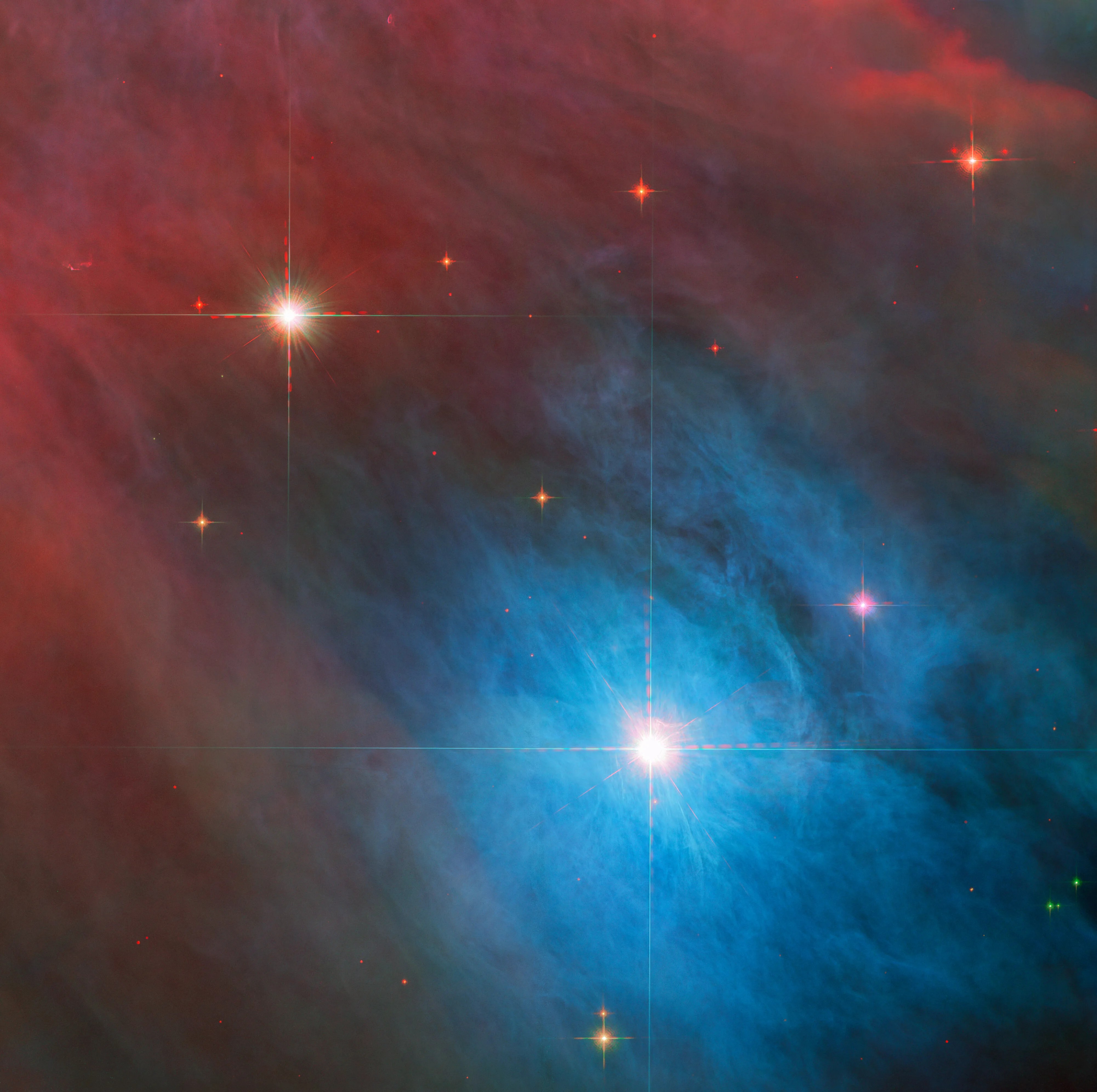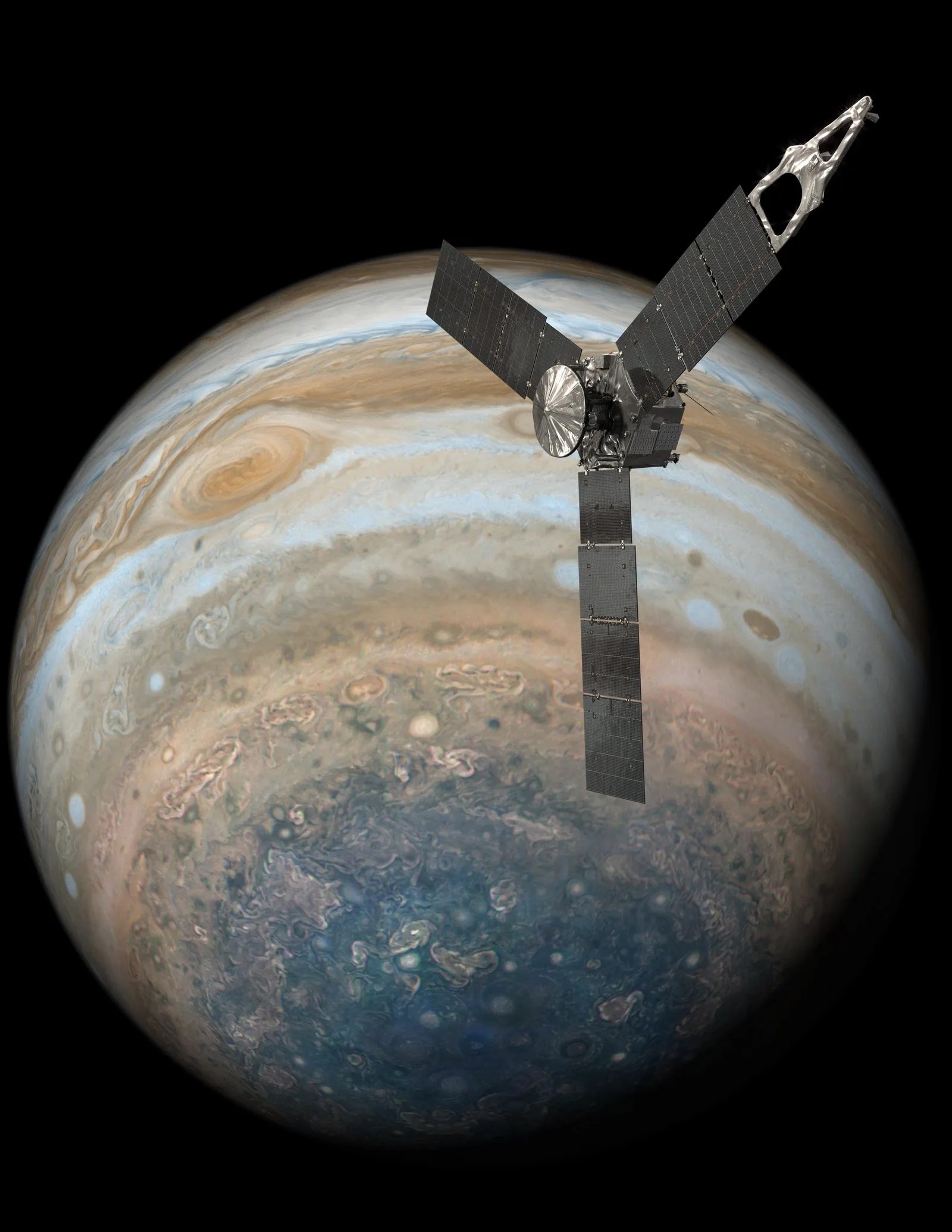2 min read

The bright variable star V 372 Orionis takes center stage in this image from the NASA/ESA Hubble Space Telescope, which has also captured a smaller companion star in the upper left of this image. Both stars lie in the Orion Nebula, a colossal region of star formation roughly 1,450 light-years from Earth.
V 372 Orionis is a particular type of variable star known as an Orion Variable. These young stars experience some tempestuous moods and growing pains, which are visible to astronomers as irregular variations in luminosity. Orion Variables are often associated with diffuse nebulae, and V 372 Orionis is no exception; the patchy gas and dust of the Orion Nebula pervade this scene.
This image overlays data from two of Hubble’s instruments. Data from the Advanced Camera for Surveys and Wide Field Camera 3 at infrared and visible wavelengths were layered to reveal rich details of this corner of the Orion Nebula. Hubble also left its own subtle signature on this astronomical portrait in the form of diffraction spikes that surround the bright stars. The four spikes around the brightest stars in this image form when an intense point source of light, such as starlight, interacts with the four vanes inside Hubble that support the telescope’s secondary mirror. The diffraction spikes of the NASA/ESA/CSA James Webb Space Telescope, on the other hand, are six-pointed due to Webb’s hexagonal mirror segments and 3-legged support structure for the secondary mirror.
Text credit: European Space Agency (ESA)
Media Contact:
Claire Andreoli
NASA's Goddard Space Flight Center, Greenbelt, MD
301-286-1940







